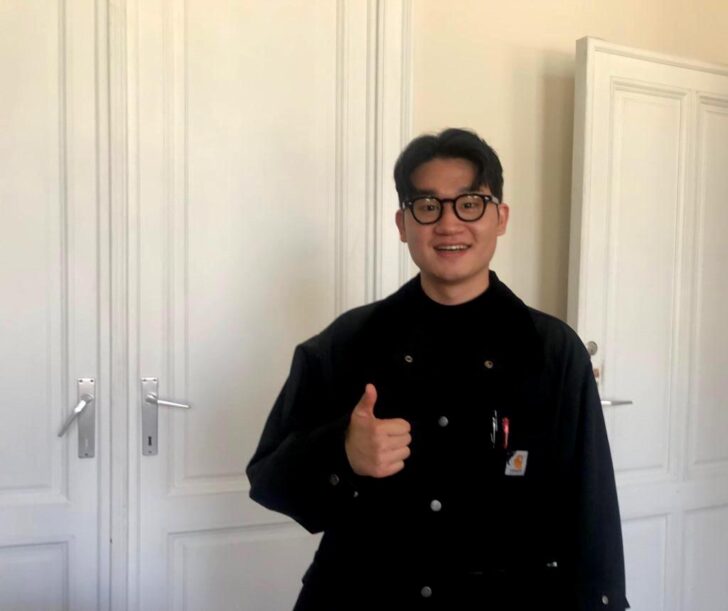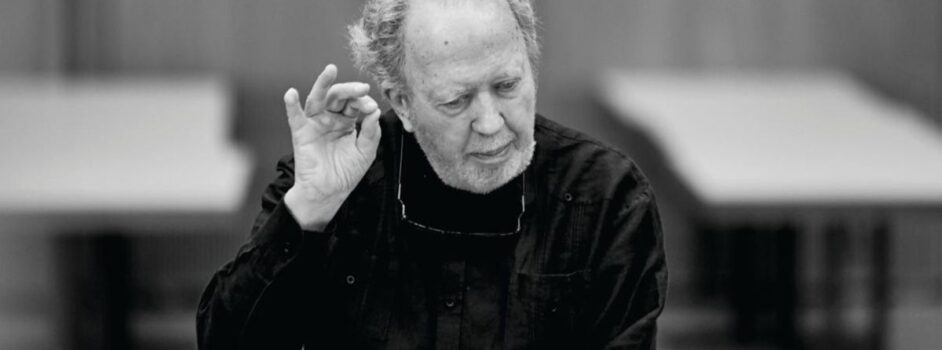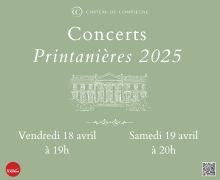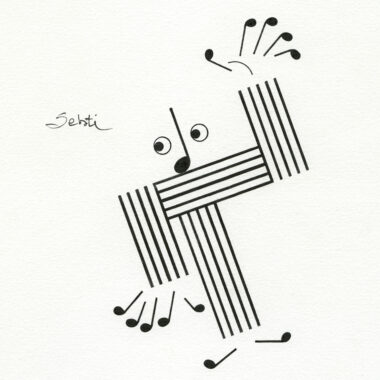Plus de détails
On 3 June 2023, Taehan Kim won the First Prize of the « Voice » edition of the prestigious Queen Elisabeth Competition. The baritone singer, who was the youngest of the finalists, touched the audience with his intelligent use of his vocal means, his work on vocal texture and the great attention paid to the quality of the emotions conveyed by the texts.
 ResMusica : How do you feel after this First Prize at Queen Elisabeth Competition ?
ResMusica : How do you feel after this First Prize at Queen Elisabeth Competition ?
Taehan Kim : I cannot believe this situation, what happened to me ?
RM : You maybe need time to process it. How did you feel during the competition? During the different rounds Did you feel like… you were preforming a concert or did you sing for the jury ?
TK : I feel concert not a competition. So, that's why I was not nervous at all. So, I could
fully enjoy the stage. And I was quite satisfied with my performance.
RM : Can you tell us all you … choose to become a singer ?
TK : In my age 14, I wanted to be a singer but but I just wanted to sing like a pop or a
rock like that. So I asked my mom to … how to sing. And then my mother wanted me to learn about the classical singing. And after that I entered Arts High School in South Korea. And after that, we I met a friend who studied the same classical music and we have some we good effect each other and it makes me more and more more and more fall in love with the classical music. So that's why I choose my job as an opera singer. Yeah. I entered the high school in my 15s.
RM : That's quite young. And did you have courses on music before that, like the basics of music ?
TK : Not before entered high school.
RM : We were striked, during the concert that your maturity. Because you are the youngest. And yet, you transmitted a wide range of emotions. Where does this wide palette comes from ?
TK : When I first started a piece, we have to as a Asian we have to translate that, the meaning of the lyrics, word by word. So that's the first step for us. And after that, I make my own emotion with translated word and sentence. So I set my character and try to synchronize so that's that's how to make music for me.
RM : Talking about the translation, you've got quite a good diction. How do you work because it's not as you said, your native languages isn't either German or Italian or… French, we noticed the French lyrics in Verdi. So, how do you work how do you prepare this ?
TK : For me, the diction is the most important thing to singing. Because we are foreigner. As a foreigner, I have to make our audience understand what I said, well, what I want to express about this song? So, diction is the most important thing for me. So I tried to study the diction, like using IPA, that's the International Phonetic Alphabet. And listen how native speakers are singing and, while listening, repeat that. Try to be native speaker like that. So it's quite important for me. So that's how I build my diction.
RM : Of course, we were also very moved by the quality of the sound, with the texture. What are you looking when you are you're singing? What quality are you looking for ?
TK : My personal goal is to present my emotions to the audience. So for me audience is very, very important. On the stage, I try to try to express my feelings to move people and move the audience That's the that's the point for me on the stage.
RM : And you reached this goal…I must say, lots of us were deeply moved. Like… with your Korngold piece, in the final round. And you said you have a special relationship with this piece.
TK : It works like a special weapon for me. I love this piece so much and I think I can fully express with this song with my emotion. I can I think I can move people with this song. That's why I choosed that piece. And I am I I want to finish my repertoire with French arias. So I choose the « Ah je meurs. » (Don Carlos)
RM : It was a challenge, vocally, to finish with this piece wasn't it ?
TK : yeah, it's quite a quite grand piece.
RM : And you sang it in French.
TK : Yes [smiling] and the last sentence was « sauve la Flandre.
RM : We noticed that. Isn't it more difficult to sing in French ?
TK : For me in the in case of « Ah, je meurs », it's much more easier than the Italian. I think. For me. Only for this song, I think so.
RM : You're very young and your voice will still evolve and get even better and better. But you also have to protect your voice, because you will surely have a long career . And in order to have along career… So have you an idea how you will work. Maybe you will see with your professor… I don't know.
TK : I already have fixed plan. From this September onwards, I'll work at Berlin Staatsoper as a member of open studio. So I'll start my career from small roles. And I can watch the superstar singing and learn how they act on the scene. It will be a very good experience for me. I think so. So I'll try my best.
RM : Why what will be your take like when you get home or… to work on ? Or on what the future could look like, for you ?
TK : A great singer, a great opera singer who is traveling all over the world and sing the main role, the big roles. So I want to be that kind of singer. I'll travel all over the world and sing that roles, the main roles.
RM : Winning the Reine Elisabeth competition First Prize will provide you with lots of visibility now to reach this goal. How did you choose to enter the competition ? You already won other Prizes before.
TK : But the reine Elisabeth Competition is a special prize. Those other ones weren't main prizes. At the time I got those prizes because of my age. At the time, my age was 21. So extremely young. I failed to sing the piece but they gave me the special prize because of my age.
RM : Or because of the the qualities that they guessed you had ? Do you have any advice to provide to the youngest ones who would like to start singing ?
TK : Oh, I think so. Study well study all the pieces and the composers, their life. And if you want to sing art songs, you will have to study about the poet life and the poems. Yeah, so it's study well and and save your voice.







